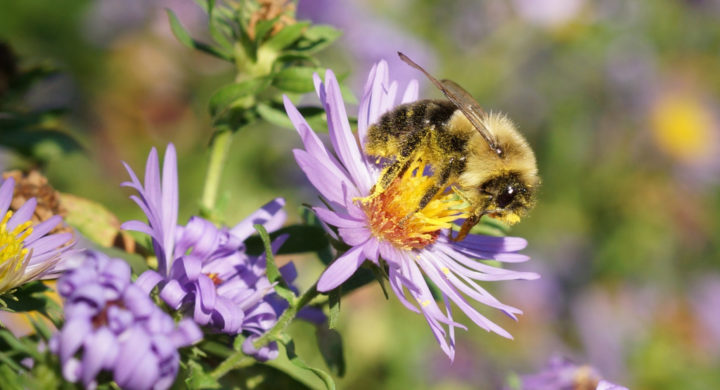Spring is finally getting underway — it’s time to think about your yard!
The Waite Park Community Council (WPCC) is partnering with Metro Blooms Neighborhood of Raingardens program to help 25 homeowners install raingardens this year. Raingardens help keep pollutants out of the Mississippi River and provide habitat for pollinators and local wildlife, including Minnesota’s state bee, the endangered rusty patched bumble bee! 🐝
Metro Blooms Design + Build will offer on-site consultations this summer to identify the best location and discuss budget, plant preference, and other resilient landscaping practices. The designer then will develop a planting plan for each garden (150 sq. ft. maximum). Designs will be sent to residents for approval two weeks prior to their scheduled installation.
Metro Blooms Design + Build will excavate the garden area, mix in compost, apply mulch, and haul away sod/soil, if necessary. Residents will coordinate with Metro Blooms for a plant pick-up, where staff will be available to offer guidance and support before planting.
Participants will pay for plants, mulch, and sod/soil disposal (if necessary), as well as half of the consultation fee. The average cost per resident is $300-$400 depending on the size of the raingarden and number of plants.
Registration will open at 8 a.m. Thursday, May 12, and remain open until all 25 slots are filled. To sign up, please contact Neely Atha at neely@metroblooms.org with your name, address, phone number, email address and neighborhood (Waite Park).
Metro Blooms Design + Build is a wholly-owned for-profit entity that supports the work of Metro Blooms Non-Profit by provides high quality, resilient, and sustainable landcare services for residential and commercial landscapes. It specializes in creating beautiful raingardens, stormwater management, and native plantings. More information is at https://metrobloomsdb.com.


